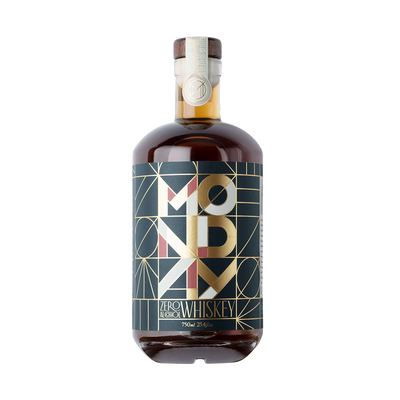Sober Curious, A Mindfulness Movement

Gen Z has been branded the sober generation.
Distribution of Non-Alc beer and spirits have soared 33% with major beer companies reinvesting in zero-alc product lines.
Alc-Free bars are popping up all over the nation (and world).
In all likelihood, alcohol-free cocktails have become available on a menu in your own neighborhood.
Clearly, a major shift is happening...
Cultural shifts of this scale usually occur at a pace so gradual that they can hardly be perceived until dust settles and the benefit of hindsight kicks in. The sober curious movement shirks this standard timeline and grows so powerfully fast that those with their antennas up are sure to pick up on the signals in real time.

So what does ‘sober curious’ mean?
The term was coined by Ruby Warrington, author of Sober Curious: The Blissful Sleep, Greater Focus, Limitless Presence, and Deep Connection Awaiting Us All on the Other Side of Alcohol, who explains, “[Being sober curious] means, literally, to choose to question, or get curious about, every impulse, invitation, and expectation to drink, versus mindlessly going along with the dominant drinking culture.”
This definition implies several important characteristics about the sober curious movement:
For one, it in no way implies that one must abstain from drinking altogether.
In regards to alcohol, the predominant mindset is one of all or nothing. Either you are sober and never touch a drink, or you’re not sober and therefore are expected to drink at all functions where alcohol intake is par for the course. Just try not drinking at a venue where it’s the norm and watch the questions fly. Why aren’t you drinking? Is everything ok? Do you have a drinking problem?
The balance in the equation is changing as younger and modern generations are quickly doing away with the all or nothing approach to alcohol consumption in exchange for ‘mindful drinking’. Polling suggests Millennials and Gen Z’ers are far less likely to drink during the work week, (but can certainly still enjoy a beverage on the weekend). This new outlook can be attributed in part to the rise of an all encompassing modern health and wellness movement. For Gen Z and Millenials it is presupposed that anything going into the body should be healthy; the rise of low carb, low sugar, and alcohol free drinks has risen to meet these demands. An increased participation in yoga, meditation, and physical activity furthermore offer avenues of stimulation and stress reduction that have supplanted the reliance on substances as outlets.
As to avoid any potential confusion by the language of the movement, being sober curious does NOT mean being curious about being sober. In fact, it can mean the opposite.
Sobriety is not the singular, ultimate goal here. It is the act of questioning one’s own impulses to drink that define the ultimate realization of the movement.

So how does this look in practice?
The sober curious mind might ask of itself, why do I feel the impulse to drink in order to hang out with my friends? What problem is alcohol expected to solve in this situation? If human connection and friendship are the primary drivers of a hangout, what role does consuming alcohol play in achieving these ends? Is it necessary? In reality, to what degree does consuming alcohol help or hinder the need for connection?
In the example of someone losing a job or partner, the sober-curious approach might ask, how do I feel that drinking alcohol will help in dealing with this loss? What is the validity of this assumption? What are my expectations associated with alcohol consumption v.s the outcome? These questions can even be asked and continually reassessed AS alcohol consumption occurs ie: How is this drink making me feel v.s how I imagined it would make me feel?
This sort of introspection can create a useful degree of separation from the sleepwalking/auto-piloted drive to drink alcohol, especially in challenging moments. The resulting self awareness robs the power of outside pressures enforcing the norms of drinking, revealing the reality that there is no norm; there is only you, your body, and what feels right.
The awareness fostered by the sober curious approach really taps into the basis of mindfulness itself. Mindfulness is the basic human ability to be fully present, aware of where we are and what we’re doing, and not overly reactive or overwhelmed about what's going on around us. The benefits of mindfulness are directly applicable to every aspect of our daily lives including our relationship to drinking.
With recognition of its inextricable ties to mindfulness, it's clear the sober curious movement, in all reality, isn’t entirely new. It’s simply taking the already growing practices of mindfulness and its various subsets (Yoga, Meditation, Health & Wellness) and placing them directly into your cocktail glass.
Cheers!
-Monday
